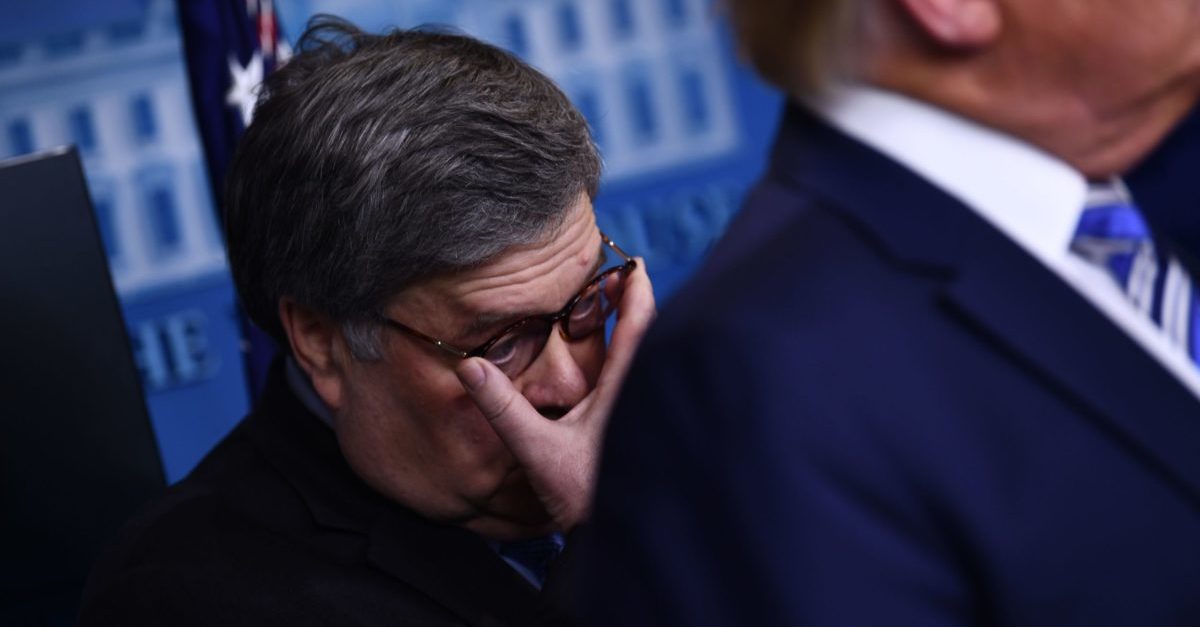
A privacy and civil liberties group that nudged a federal judge one week ago, asking him to review the unredacted version of the Mueller Report as soon as possible, has gotten an answer. U.S. District Judge Reggie Walton set a target deadline on Wednesday for completing his review of the Department of Justice’s redactions.
Walton set a status conference for noon on June 18, ordering the plaintiffs–the Electronic Privacy Information Center (EPIC), BuzzFeed and BuzzFeed News reporter Jason Leopold—and the DOJ defendants to appear.
June 18 “shall serve as a target date for the resolution of the parties’ summary judgment motions,” Walton’s minute order said. “In the event that the Court is unable to resolve the motions by this date, the parties will be advised in advance that the status conference will be continued to a later date.”
EPIC argued last week that Walton should speed up his “essential” review of the Mueller Report amid the pandemic, saying that time was of the essence.
In early March, Walton slammed Attorney General William Barr’s credibility, going so far as to say Barr “distorted” the findings of the Mueller report and inappropriately went out of his way to control the narrative about the investigation into Russian interference and obstruction of justice. Not taking Barr’s word for it, Walton ordered the DOJ to hand over a full copy of former special counsel Robert Mueller’s work for in camera review. (In camera means in the judge’s chambers.)
In late March, the George W. Bush-appointed judge obtained an unredacted copy of the Mueller Report. At the same time, Walton noted that the coronavirus pandemic had thrown a wrench into the matter [emphasis ours]:
Consistent with the [DOJ’s] Notice of Submission of Documents for In Camera Review, the Court has received the unredacted version of the report regarding Special Counsel Robert Mueller’s Investigation into Russian Interference in the 2016 United Stats presidential election (the “Mueller Report”). However, in light of the Chief Judge Howell’s March 16, 2020 Order Regard Court Operations in Exigent Circumstances Created by the COVID-19 Pandemic, the Court’s review of the unredacted version of the Mueller Report is unable to occur until the Court resumes its normal operations on April 20, 2020, unless the Court’s normal operations are further suspended due to the COVID-19 pandemic.
EPIC argued last week that the in camera review of the Mueller Report should begin on April 20.
“EPIC respectfully submits that in camera review of the Mueller Report is an essential function warranting the Court’s prompt attention,” the five-page filing said last Friday. EPIC then noted Judge Walton’s words that the Freedom of Information Act (FOIA) is “vital” to a democratic society, precisely because it allows citizens to evaluate and criticize the decision the government makes:
As this Court recently stated, the FOIA “‘give[s] citizens access to the information on the basis of which government agencies make their decisions, thereby equipping the populace to evaluate and criticize those decisions[.]’” Mem. Op. 21 (quoting McGehee v. Cent. Intelligence Agency, 697 F.2d 1095, 1108–09 (D.C. Cir. 1983)). “[The FOIA] ensure[s] an informed citizenry, vital to the functioning of a democratic society, needed to check against corruption and to hold the governors accountable to the governed[.]” Id. (quoting NLRB v. Robbins Tire & Rubber Co., 437 U.S. 214, 224 (1978)).
Time is of the essence in this case. It is vital that the American citizenry know the full extent of Russian interference in the 2016 presidential election before casting their votes in the 2020 presidential election, now just 200 days away. And it is vital that there be judicial review of the DOJ’s asserted exemptions that prevent public release of relevant information contained within the Mueller Report.
[Image via Brendan Smialowski/AFP via Getty Images]